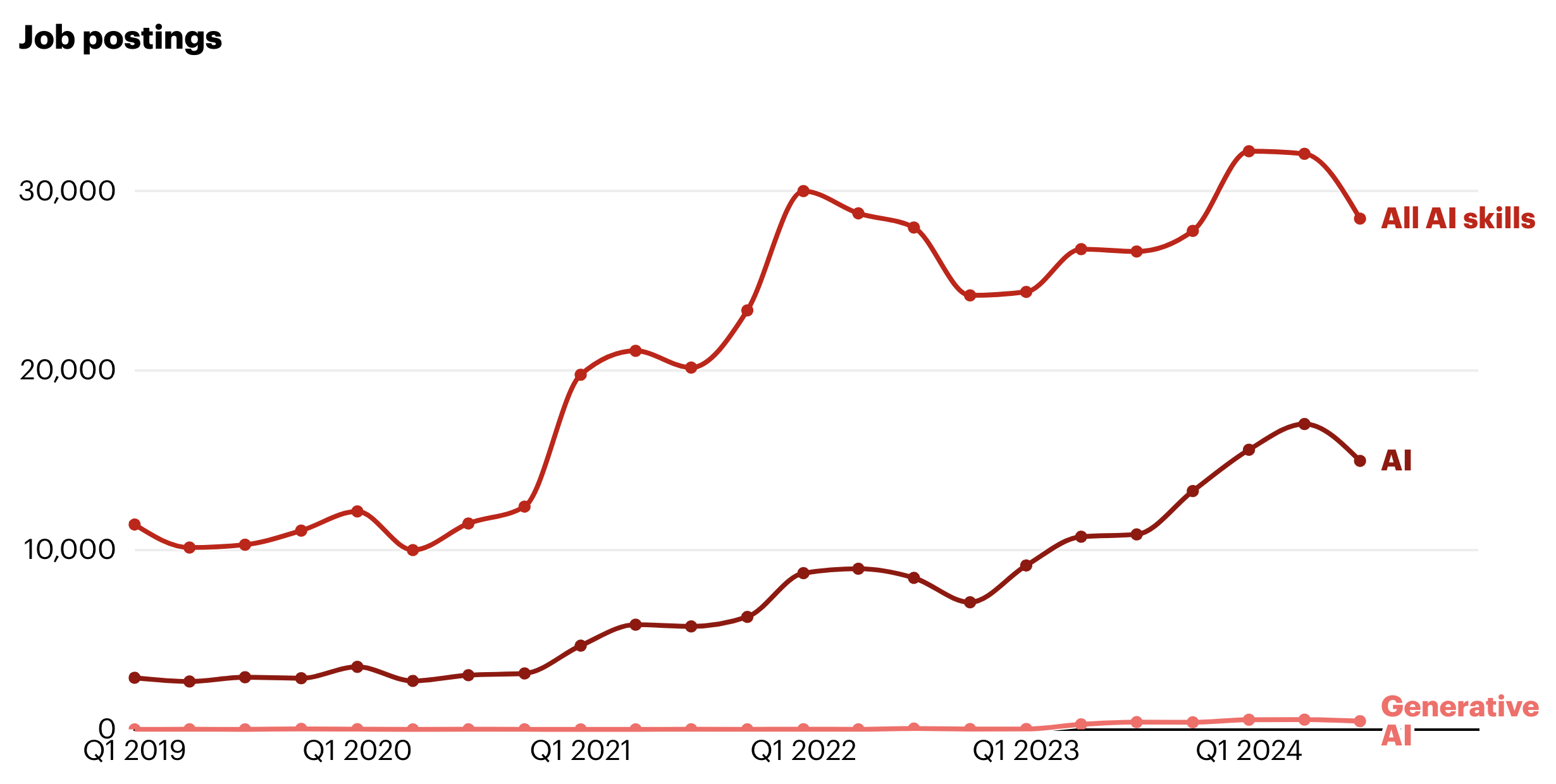
'Executives see the growing AI talent gap as a major roadblock to innovation,' says expert calling for upskilling, expanded hiring

There is a growing talent gap in terms of artificial intelligence as the technology's adoption in workplaces expands while the number of qualified candidates is not keeping pace.
Findings from Bain & Company revealed that AI-related job postings have surged by 21% annually since 2019, with compensation for such roles increasing 11% in the same period.

Source: Bain & Company
The report, however, noted that the number of qualified candidates is not catching up with the demand, creating a talent gap in organisations.
In the United States, Bain forecasts that one in two AI jobs could be left unfilled by 2027, as job demand could reach more than 1.3 million in the next two years, while supply will only reach less than 645,000.
Germany could see the biggest AI talent gap, according to Bain, with around 70% of the country's 190,000 – 219,000 estimated AI job openings expected to be unfilled by 2027. For other countries, Bain projects that:
Separate findings from LinkedIn revealed that talent with the right balance of AI expertise and human skills is also hard to find.
More than four in 10 (41%) HR professionals in the Asia-Pacific region revealed that only less than half of job applicants meet all required and preferred qualifications for the role. Among the hardest skills to find include:
The findings come as 95% of learning and development (L&D) professionals in APAC emphasise that creativity, curiosity, and communication are also important in addition to technical know-how.
The gap in AI talent is seen as a key barrier for implementing generative AI at work, according to 44% of executives in Bain's report.

Source: Bain & Company
"Executives see the growing AI talent gap as a major roadblock to innovation, limiting businesses' ability to scale and compete in an AI-driven world," said Sarah Elk, Americas head of AI, Insights, and Solutions at Bain & Company, in a statement.
"Companies navigating this increasingly competitive hiring landscape need to take action now, upskilling existing teams, expanding hiring strategies, and rethinking ways to attract and retain AI talent."
Upskilling is also the focus of organisations in LinkedIn's APAC-focused report, where 78.3% of the respondents ranked helping employees build new skills as a top priority for them in 2025.
Among the top skills that they are prioritising include AI skills (73.5%) as well as communication and collaboration (77%).
"As technology, especially AI, reshapes the workforce, businesses and HR leaders must keep people at the heart of their talent strategies," said Sumita Tandon, HR director, APAC, LinkedIn, in a statement. "The companies that will thrive are those that embed a culture of continuous upskilling and reskilling, ensuring employees are prepared for the future."
For organisations seeking to upskill their staff in AI, Marc Booker, Ph.D., Vice Provost, Strategy at University of Phoenix, offered on The Learning Counsel the following key steps: